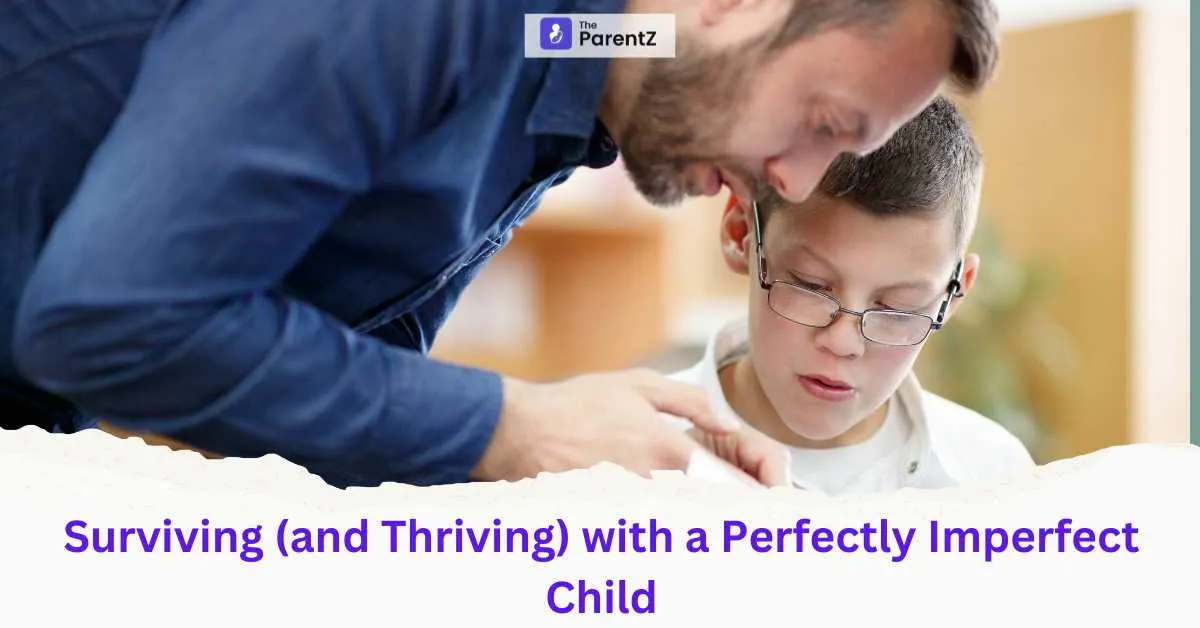Parenting is an extraordinary journey full of unexpected twists, learning curves, and moments of joy and challenge. Every child is a unique blend of strengths and vulnerabilities, and sometimes our children do not fit into the “perfect” mold that society or even our own expectations might impose. Instead, they come with quirks, imperfections, and surprises that make them who they are. In this article, we’ll explore how to not only survive but truly thrive when parenting a perfectly imperfect child.
Embracing the Uniqueness of Your Child
Every child is born with their own personality and pace of development. Recognizing and celebrating these differences is the first step toward fostering a nurturing environment.
Understanding Imperfections
It’s natural to wish for perfection in our children, but understanding that imperfections are part of their individuality can shift your perspective. Studies in child development suggest that children who feel accepted for who they are tend to develop higher self-esteem and emotional resilience. When you accept your child’s limitations and celebrate their strengths, you’re laying the groundwork for them to learn how to navigate life’s challenges with confidence.
Celebrating Unique Talents
Your child’s quirks might include unconventional ways of thinking, learning, or expressing themselves. These unique talents deserve recognition. Instead of comparing your child to others, focus on the skills and interests that make them stand out. Whether it’s a flair for creativity, a knack for problem-solving, or simply an infectious sense of humor, these qualities are vital. Celebrating these attributes not only boosts their self-confidence but also reinforces the idea that being different is something to cherish.
Effective Parenting Strategies for a Perfectly Imperfect Child
Every family is different, and there is no one-size-fits-all approach to parenting. However, some strategies have proven effective in helping parents support their child’s unique needs while also nurturing their own well-being.
Encouraging Open Communication
Communication is the cornerstone of any healthy relationship, especially between parents and children. Establish an environment where your child feels safe to express their feelings—whether they’re excited, frustrated, or confused. Use active listening techniques: maintain eye contact, paraphrase what your child is saying, and validate their feelings. This not only builds trust but also provides you with valuable insights into your child’s world, allowing you to tailor your support more effectively.
Tailoring Support to Their Needs
Every child processes information differently. Some may benefit from visual aids, while others might respond better to verbal cues or hands-on learning experiences. By tailoring your parenting techniques to suit your child’s preferred style, you can help them overcome challenges in their own way. Research in educational psychology supports the idea that individualized learning and care approaches lead to improved outcomes in both academic and social development. Remember, your willingness to adapt is a sign of strength and commitment.
Fostering a Positive Home Environment
Creating a nurturing home environment is essential for both your child’s development and your own well-being as a parent. A positive environment can make even the toughest days a bit brighter.
Creating a Nurturing Space
A supportive home doesn’t have to be extravagant—it starts with love, respect, and consistency. Establish routines that provide structure, yet allow for flexibility. This balance is crucial because while routines give your child a sense of security, flexibility allows room for spontaneous learning and fun. Consider designating a “quiet corner” or a special area in your home where your child can unwind and feel safe, a place where both of you can recharge.
Building Resilience Together
Resilience is built not just through personal experiences, but through shared family moments. Engage in activities that strengthen your family bond, whether it’s a weekly game night, a collaborative project, or a simple walk in the park. These shared experiences can teach valuable lessons about teamwork, problem-solving, and the importance of mutual support. As research in family therapy shows, families that work together to overcome obstacles tend to emerge stronger and more connected.
Seeking Professional Guidance and Community Support
It’s important to remember that you don’t have to navigate parenting alone. Professional guidance and a supportive community can provide invaluable assistance.
The Role of Therapy and Counseling
Sometimes, the challenges of parenting a perfectly imperfect child may feel overwhelming. Professional counselors or therapists specializing in child behavior can offer tailored strategies to manage stress, improve communication, and address behavioral issues. Evidence suggests that therapy can be a powerful tool in creating a more harmonious family dynamic, providing you with insights and techniques that might otherwise take years to learn on your own.
The Importance of Parent Networks
Connecting with other parents who are facing similar challenges can be incredibly empowering. Whether through local support groups, online forums, or community workshops, sharing experiences and advice can remind you that you’re not alone. These networks not only offer practical advice but also provide emotional support, helping you feel understood and validated. Remember, a community of like-minded parents can transform isolated struggles into shared victories.
Conclusion
Parenting a perfectly imperfect child is not about striving for an unattainable ideal; it’s about embracing the beauty in the messiness of life. By accepting your child’s unique challenges, adapting your approach to meet their needs, and creating a nurturing environment, you’re laying the foundation for a resilient and fulfilling family life.
Remember, perfection is not the goal—connection, growth, and unconditional love are. Every imperfect moment is an opportunity for growth, learning, and deepening the bond you share with your child. As you continue on this journey, know that your efforts, compassion, and willingness to adapt are the true markers of success. Surviving and thriving isn’t about having all the answers—it’s about taking each day as it comes, with courage, creativity, and an open heart.
For every parent reading this, know that your dedication to your child’s unique journey is making a profound difference. Embrace the imperfect, celebrate the unique, and together, create a story of resilience, love, and thriving growth.





Be the first one to comment on this story.